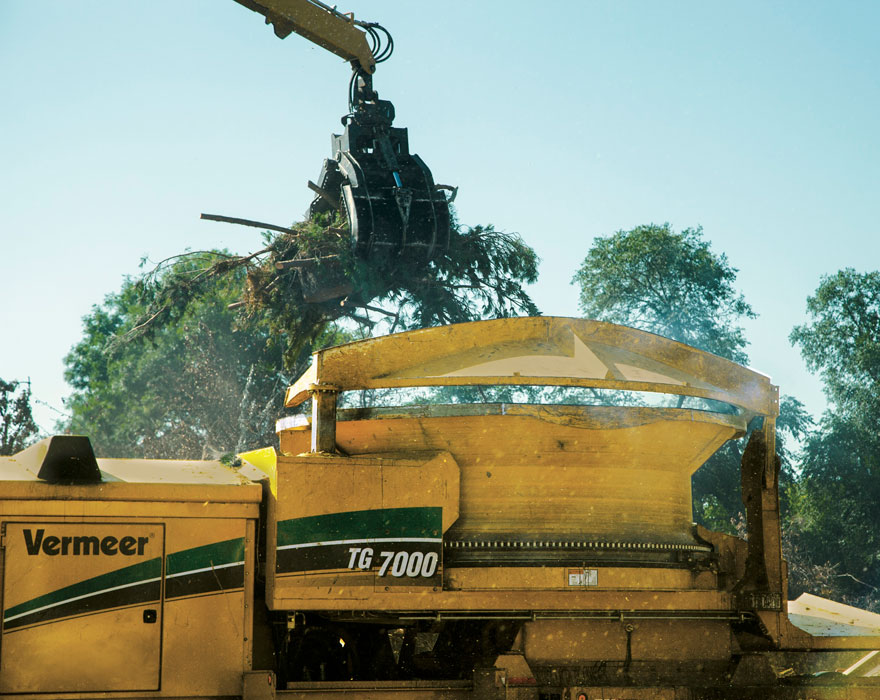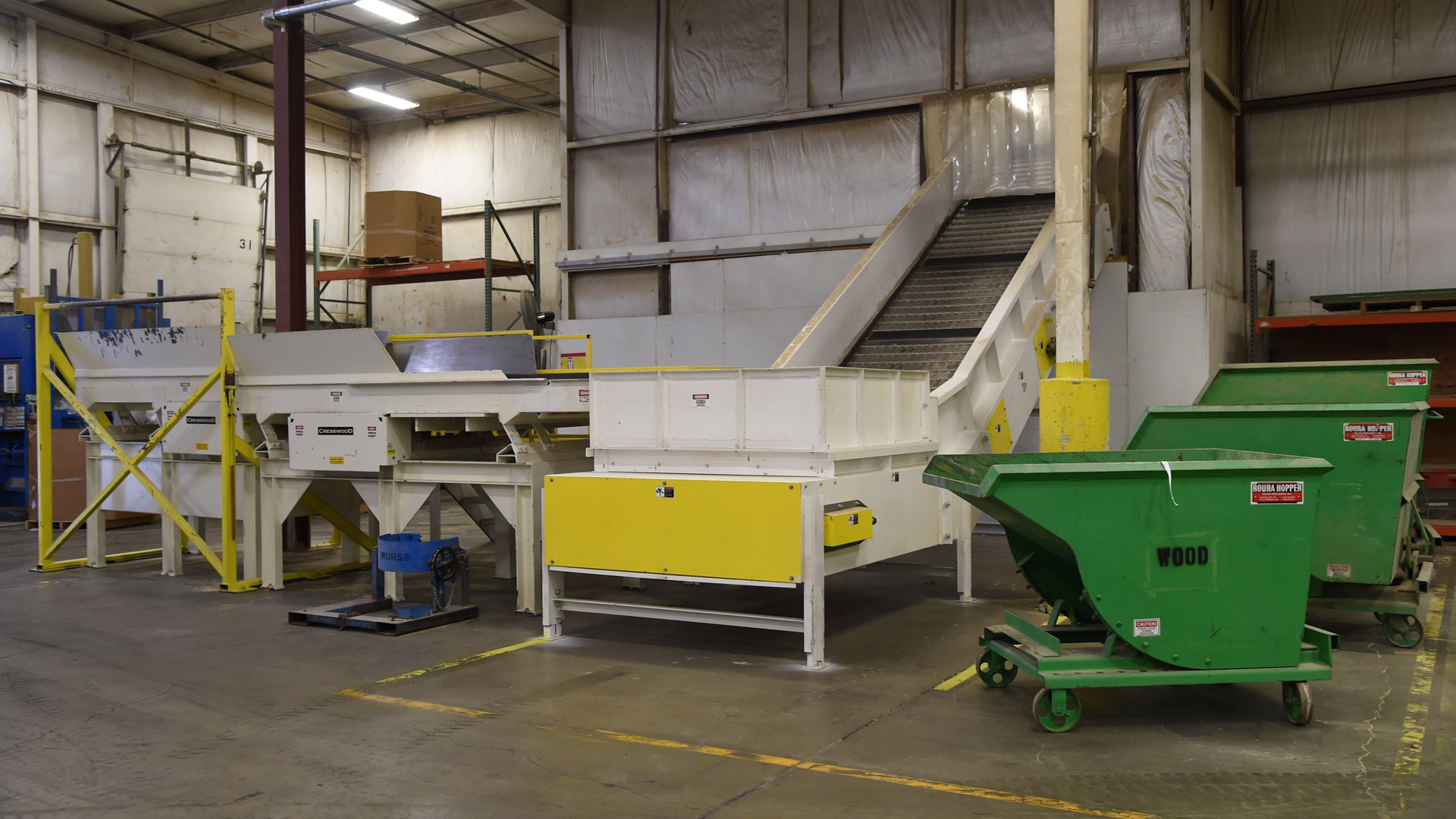Wood Grinders: Open Efficiency with Cutting-Edge Equipment for Lumber Handling
Wood Grinders: Open Efficiency with Cutting-Edge Equipment for Lumber Handling
Blog Article
Sustainable Timber Grinding Solutions: Changing Recycling Devices for a Greener Future
In today's world, where sustainability and ecological awareness go to the forefront of international concerns, it is critical to explore ingenious solutions that can reinvent reusing practices. One such option that holds tremendous potential is sustainable wood grinding. The procedure of wood grinding has witnessed considerable innovations in modern technology, leading the way for a lot more reliable and eco pleasant recycling equipment. But just what is sustainable wood grinding, and how does it contribute to a greener future? In this conversation, we will explore the relevance of lasting wood grinding, highlight the environmental benefits it supplies, and explore exactly how it boosts performance and performance in recycling. We will also think about the future overview of wood grinding as a crucial element in developing a much more eco-friendly and sustainable globe.
The Importance of Lasting Timber Grinding
Sustainable timber grinding plays an important duty in advertising ecological stewardship and advancing the objectives of a greener future. Timber grinding describes the process of breaking down wood waste into smaller sized, more convenient items. This procedure is essential for numerous factors.
To start with, lasting timber grinding helps with the reliable use wood waste. By minimizing timber waste right into smaller sized pieces, it comes to be easier to recycle and repurpose. This not only minimizes the demand for brand-new raw materials but additionally minimizes the amount of timber waste that winds up in landfills.
Second of all, wood grinding helps to mitigate the environmental effect of wood waste. When timber waste disintegrates in landfills, it launches methane, a powerful greenhouse gas. By processing timber waste through grinding, methane exhausts can be dramatically minimized, therefore adding to the fight against climate change.
Additionally, lasting timber grinding promotes the growth of a circular economic climate. By grinding wood waste and transforming it right into functional materials, such as compost, biomass gas, or composite products, the worth of the waste is optimized, and its life expectancy is extended. This minimizes the requirement for brand-new sources and promotes a more lasting technique to source management.
Innovations in Wood Grinding Innovation
Developments in timber grinding modern technology have changed the performance and efficiency of the procedure, paving the means for a much more ecologically friendly and sustainable future. The innovations in wood grinding technology have actually caused substantial renovations in several key locations.
Firstly, the development of more effective and efficient grinding equipments has raised productivity and minimized energy intake. These machines are now with the ability of refining larger volumes of timber waste in a much shorter quantity of time, resulting in higher throughput and lowered functional prices.

Secondly, improvements in grinding technology have actually boosted the high quality and uniformity of the wood grind. Modern grinding machines are geared up with advanced control systems that enable accurate adjustments in the size and uniformity of the wood particles. This is essential for markets that rely on timber grind for various applications such as biofuel manufacturing or composite materials producing.
Furthermore, the most recent timber grinding makers are designed to be more eco-friendly. They include features such as noise reduction systems, dirt suppression systems, and improved waste administration abilities. These innovations not just make sure a safer and healthier workplace yet additionally reduce the impact of timber grinding on the surrounding environment.
Environmental Benefits of Timber Grinding Solutions
The advancements in timber grinding technology not just enhance performance and efficiency however likewise use considerable ecological advantages. Timber grinding solutions play a crucial function in advertising sustainability and minimizing waste in different sectors.
Among the primary ecological advantages of wood grinding services is the reduction of landfill waste. By grinding timber waste into smaller sized bits, it ends up being easier to recycle the material and repurpose (wood grinders). Instead of sending timber waste to land fills, where it can release unsafe greenhouse gases as it breaks down, grinding allows for the production of useful results such as biomass, compost, or garden compost fuel
Wood grinding options likewise add to the decrease of logging. By making use of timber waste and grinding it right into usable materials, there is much less need for virgin wood. This helps to preserve forests and keep biodiversity.
Furthermore, wood grinding services help to lower the carbon impact. By repurposing timber waste right into useful products, the need for brand-new manufacturing processes and materials is lowered. This causes lower energy intake and greenhouse gas discharges linked with generating brand-new materials.
Enhancing Efficiency and Productivity in Recycling
To optimize reusing processes, implementing efficient and productive steps is crucial. In today's world, where ecological issues go to the center, it is critical to discover means to make the most of the efficiency and performance of recycling operations. By doing so, we can guarantee that more products are reused, reducing the requirement for basic materials and decreasing waste.
One way to improve effectiveness in recycling is by purchasing innovative recycling devices. Modern technologies, such as automated sorting systems and high-speed shredders, can dramatically enhance the rate and precision of the recycling procedure. These equipments can sort and process materials faster and successfully, resulting in higher throughput and decreased browse around this site labor expenses.
An additional key element of boosting performance is maximizing the operations and logistics of recycling procedures. This includes improving procedures, lessening traffic jams, and optimizing using readily available sources. By very carefully examining the entire recycling process and recognizing areas for renovation, recyclers can recognize opportunities to boost efficiency and reduce downtime.
Furthermore, implementing data-driven management systems can likewise add to enhanced effectiveness and efficiency. By gathering and examining information on recycling operations, recyclers can gain important insights right into their procedures, allowing them to identify areas of enhancement and make even more educated choices.

Future Outlook: Timber Grinding for a Greener Future
Wood grinding is poised to play a considerable duty in forming a greener future. As the world becomes more conscious of the requirement for lasting methods, the demand for effective and environmentally-friendly recycling solutions proceeds to expand. Wood grinding, with its capability to convert waste wood into helpful products and energy sources, goes to the center of this activity.
Among the vital reasons wood grinding holds such pledge for a greener future is its ability to minimize waste and advertise recycling. By grinding waste wood materials into smaller sized, a lot more convenient items, it ends up being easier to process and repurpose them. This not only decreases the quantity of waste sent out to landfills yet also decreases the need for virgin products, thus conserving all-natural resources.
Additionally, wood grinding enables the manufacturing of useful spin-offs such as compost, biomass fuel, and pet bed linens. These products can be made use of in different industries, consisting of landscape design, power generation, and farming. By transforming waste timber right into these beneficial resources, timber grinding contributes to a more round economic situation and decreases the dependence on standard nonrenewable fuel sources.

Conclusion
In verdict, lasting wood grinding options have the possible to reinvent recycling devices and add to a greener future. Innovations in timber grinding innovation have boosted effectiveness and efficiency in reusing procedures, while likewise providing ecological advantages. By removing personal pronouns and adopting an academic style of writing, the relevance of timber grinding for a greener future ends site here up being apparent.
Wood grinding refers to the procedure of breaking down timber waste into smaller sized, much more workable pieces.To start with, sustainable timber grinding assists in the effective usage of timber waste.Second of all, wood grinding helps to minimize the ecological effect of wood waste. Wood grinding, with its capacity to convert waste wood into useful products and energy resources, is at the forefront of this movement.
By transforming waste timber into these important resources, wood grinding contributes to a much more round economic climate and minimizes the reliance on standard fossil gas. (wood grinders)
Report this page